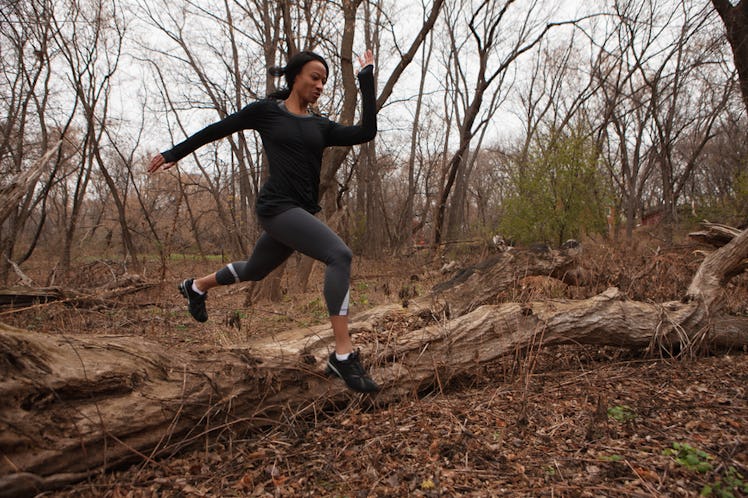
4 Things To Know About Working Out On Birth Control & How It Affects Your Body
It can honestly be exhausting trying to gather all the information on the plethora of different birth control options available to us these days. Don't get me wrong, it's a total blessing to have so many to choose from, but finding the best birth control for your lifestyle can almost feel like toying with a Rubik's cube for hours on end to no avail. Plus, when it comes to working out on birth control, there's not exactly a ton of helpful information available. However, as women, we deserve to have the facts about what we're putting into our bodies and how it's going to affect our overall well-being.
Of course, women can decide to go go on birth control for any number of reasons, from simply not wanting to have a child, to managing conditions like acne or polycystic ovarian syndrome, or even regulating painful PMS symptoms or irregular periods.
But we all know the side effects of contraceptives can be even more overwhelming to deal with than simply finding the one that works best for us.
With so many factors to consider, the last thing we want to worry about on top of it all is compromising our workout routine and our overall well-being.
Elite Daily spoke with registered dietitian Meg Dixon to get her professional opinion on how birth control can factor into a typical workout routine. She explains,
Women are cyclic beings. We ebb and flow throughout the month with our beautiful and intricate hormonal patterns.
There are four different components of our cycle: the menstrual phase, the follicular phase, ovulatory phase, and the luteal phase.
Our hormonal patterns are different in each of these phases, and this has implications on our lifestyle choices, including food, movement, sleep, community, etc.
According to Dixon, being in tune with your body in this way, and honoring your own ever-changing needs in all areas of wellness is referred to as "cyclic living." This means you may have all the energy in the world to slay a high-intensity workout during the follicular phase of your period, but you may crave, or even require, slower forms of movement like yoga or walking during the luteal phase.
And as for how birth control factors into all of this, Dixon tells Elite Daily,
The birth control pill alters your ability to live cyclically to some extent by altering your hormones and shutting off that communication between your brain and your ovaries.
For this reason, you may be able to have a more consistent, “never-changing” workout regime on certain types of hormonal contraceptives.
Trying to decide if birth control is right for your lifestyle and fitness routine? Here are five things you should know about how contraceptives affect your body when it comes to working out.
01Muscle Gains Might Be More Difficult
Hormonal birth control suppresses ovulation, so your body doesn’t get that bump in testosterone during your period.
Without that extra testosterone, it's not impossible to build your strength and improve your muscle mass when working out, but it will be a little bit harder than if you weren't on birth control.
02You Might Notice Some Mood Swings
Artificial hormones affect every woman's body differently. Some could notice no difference at all when using certain birth control methods, while others might experience severe mood swings, anxiety, or even depression, according to a Harvard Study.
Plus, when you don't get that natural testosterone boost, that can negatively affect your mood, too, causing lethargy in the gym or lack of motivation in general.
03Blood-Clotting Conditions Can Be A Concern
While synthetic estrogen and progesterone don't technically cause blood clots, most forms of the birth control pill can increase your risk of developing a blood clot pretty significantly, according to the National Blood Clot Alliance.
04Bone Density Loss Is A Potential Side Effect
Contraceptive methods such as the Depo-Provera shot, as well as some birth control pills, may lead to a decrease in bone density. Over time, this could lead to dangerous fractures, especially when you're active and working out on the reg.
All in all, the bottom line is this: There are many things to consider when it comes to choosing the right form of birth control for you. These are just a few cautionary measures to be aware of when it comes to your fitness and well-being, but it's equally important to remember the many positives to contraception as well.
Do your research, listen to your body, and stay informed. And if you're ever in doubt, your doctor is just a phone call away.
This article was originally published on